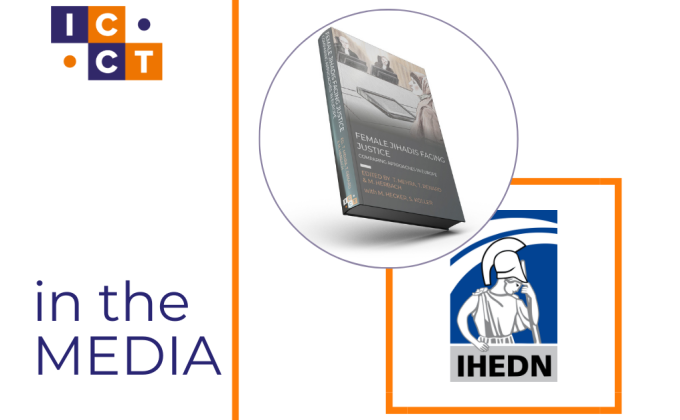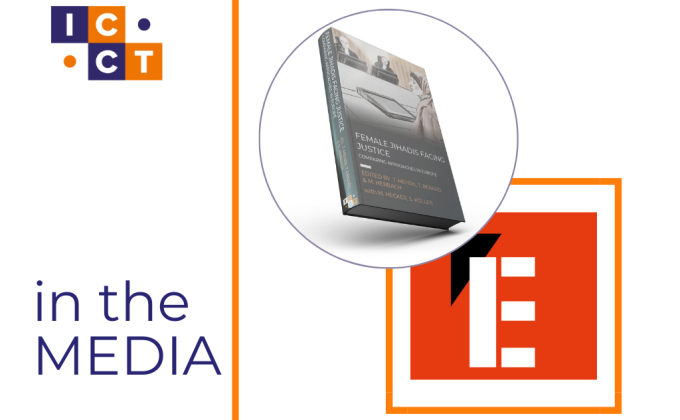On 28 September 2017, the mother of a French foreign terrorist fighter (FTF) was found guilty of terrorism financing and sentenced to a two-year jail term by a criminal court in Paris. She is accused of having sent money to her son Abbes Bounaga and having paid for plane tickets as he travelled to Algeria and to Malaysia from November 2015 to May 2016. Bounaga eventually reached Syria and joined so-called Islamic State (IS) in June 2016, and is believed to have died there in August 2016. In addition to the mother, the brother and a friend of the French jihadist were prosecuted for terrorism financing, for a total amount of about €6,000 (€2,800 from the mother, €500 from the brother, and €2,900 from the friend).
During trial, the prosecution argued that the mother and the other accused knew that Bounaga was radicalised, and that he was likely to use the funds received to engage in terrorist activities. However, the relatives maintained that they did not have full knowledge of the whereabouts and activities of Bounaga, and that the money sent was aimed at covering basic needs, such as food and medical costs following an accident in Malaysia. In a verdict that has incited debate on whether it is appropriate to prosecute families of FTFs in such circumstances, the court found the relatives guilty and issued prison sentences of two years without immediate incarceration for the mother, one year suspended for the brother, and three years with immediate incarceration for the friend.
The Broad Net of CFT Laws: No Intent Required
Countering the financing of terrorism (CFT) laws are quite broad, and the criminal offence of terrorism financing is no exception. In the past decade and a half, most countries have adopted CFT measures in implementation of United Nations Security Council (UNSC) Resolution 1373 of 28 September 2001, which requires all States to criminalise the financing of terrorism, as well as to adopt targeted financial sanctions such as assets freezing. Under Resolution 1373, which reproduces the terms of the 1999 Terrorist Financing Convention, terrorism financing is defined as “the wilful provision or collection, by any means, directly or indirectly, of funds by their nationals or in their territories with the intention that the funds should be used, or in the knowledge that they are to be used, in order to carry out terrorist acts.”
Remarkably, terrorist intent is not necessarily required to constitute the offence, and a mere requirement of knowledge can be sufficient to find someone guilty of financing terrorist activities. In legal terms, terrorist intent refers to the subjective intention to engage in or to support activities aimed at seriously disturbing public order through intimidation or terror, and is usually a key element with regards to terrorism-related crimes. By contrast, the offence of terrorism financing can be constituted with a lower threshold, namely knowledge of a risk or possibility that funds could be used for terrorist purposes.
It is under such provisions that relatives of an FTF have been prosecuted in France. Article 421-2-2 of the French Penal Code defines terrorism financing as “providing, collecting or managing funds, securities or property of any kind, or by giving advice for this purpose, intending that such funds, security or property be used, or knowing that they are intended to be used, in whole or in part, for the commission of any of the acts of terrorism.” Due to the broad reach of the provision, the fact that parents and other close relatives of FTFs “strongly condemn terrorism” and do not intend to support it is irrelevant. Besides, as interpreted by the court in the case at hand, it is sufficient to demonstrate that the relatives should have known that the money could be used for terrorist activities (constructive knowledge, or dolus eventualis). Indeed, although the mother insisted that she was not even aware that her son ultimately travelled to Syria, the court considered that, since she knew that her son was radicalised, she could not have ignored that his aim was to join IS.
The Inescapable Dilemmas Faced by Parents of FTFs
Beyond the issue of legal standards, the case illustrates the dilemma that relatives of FTFs can face. If you were a parent who knows that your child travelled to Syria, and this child was to contact you to ask for some money to cover basic needs such as food or medical costs, what would you do? This has often been the situation of parents and other relatives accused of terrorism financing. In many cases, factual circumstances are far from clear-cut, and parents find themselves having to choose between abandoning their child or risking supporting terrorist activities.
It is not the first time that relatives of FTFs are being prosecuted for terrorist financing (although convictions had so far only occurred with regards to family members who actually supported terrorist views). In the United Kingdom (UK), for example, the parents of ‘Jihadi Jack’ have been charged with terrorist financing for having sent approximately £1,700 to their son while he was in Syria. Under Section 17 of the UK Terrorism Act 2000, the offence of terrorism financing is constituted if one “knows or has reasonable cause to suspect that [funds] will or may be used for the purposes of terrorism.” In Belgium as well, a mother has been charged for providing money to her son in Syria, who was allegedly wounded and asked help to cover medical costs.
The Disproportionate Use of Broad Counter-Terrorism Laws
As a matter of prosecutorial policy, it is questionable whether prosecuting parents of deceased FTFs on the ground of terrorism financing is appropriate. Indeed, such de minima prosecutions seem far removed from the core aim of CFT measures to disrupt international terrorist financial flows. It could be considered that the financial support provided by parents amounts in some cases to facilitating travel. However, relatives should then be prosecuted on that ground – which usually requires demonstrating a higher degree of intent – rather than under broader measures with a different purpose.
Furthermore, in the era of FTFs, it is important to acknowledge the dilemma faced by conflicted parents who can be considered to have a moral duty of care towards their children in need. While the extensive reach of CFT laws can be explained, the strict application of criminal measures to parents of FTFs is arguably disproportionate, and constitutes one more example of the excessive use of broad counter-terrorism laws that has been observed in the past years.








